Safety Concerns with Online Market Stay & Homestay Networks
 Online marketplace and homestay networks are extremely popular right now, as they allow travelers to rent great residential places in which they can feel at home wherever they go. These residential properties have been known to be very reasonable pricewise when compared with hotel stays, as well as very comfortable and convenient. While the renter is benefited by this new phenomenon in travel, so is the individual residential property owner wanting to list or rent out their residential properties for some extra income. More companies are branching out into this industry, including the giant, Airbnb, as well as Expedia’s Home Away, with its newly acquired VRBO. With their overwhelming popularity and the availability of residence rentals to benefit owners and travelers, there also comes concerns with problems, that include safety and scams. Right now, an issue rearing its ugly head is that while Expedia’s HomeAway is trying to go head to head with Airbnb with its acquisition of VRBO, the company is being accused of rolling over its loyal property owners in its quest. New service fees, matching algorithms, and guarantees are causing property owners to cry foul. Many feel the company is going back on its original intent and trying to put its success over the rental and guest relationship. Operations are being switched up to the point that property owners feel like they are working for the homestay network company rather than the network working for the owners and renters. A class action suit is even in the works with Expedia’s HomeAway being accused of “bait and switch tactics which have materially damaged Plaintiff and hundreds of thousands of other vacation home owners and managers.” When property owners are taken advantage of, and losing income, this unfortunately gets passed on to the renter as well and damages owner and renter relationships greatly. It is important to add that, while owners might feel things are at a disadvantage to them in changes like those of Expedia’s HomeAway, matching features, guarantees and the like can also be protective and security measures for both the property owners and especially renters.
Online marketplace and homestay networks are extremely popular right now, as they allow travelers to rent great residential places in which they can feel at home wherever they go. These residential properties have been known to be very reasonable pricewise when compared with hotel stays, as well as very comfortable and convenient. While the renter is benefited by this new phenomenon in travel, so is the individual residential property owner wanting to list or rent out their residential properties for some extra income. More companies are branching out into this industry, including the giant, Airbnb, as well as Expedia’s Home Away, with its newly acquired VRBO. With their overwhelming popularity and the availability of residence rentals to benefit owners and travelers, there also comes concerns with problems, that include safety and scams. Right now, an issue rearing its ugly head is that while Expedia’s HomeAway is trying to go head to head with Airbnb with its acquisition of VRBO, the company is being accused of rolling over its loyal property owners in its quest. New service fees, matching algorithms, and guarantees are causing property owners to cry foul. Many feel the company is going back on its original intent and trying to put its success over the rental and guest relationship. Operations are being switched up to the point that property owners feel like they are working for the homestay network company rather than the network working for the owners and renters. A class action suit is even in the works with Expedia’s HomeAway being accused of “bait and switch tactics which have materially damaged Plaintiff and hundreds of thousands of other vacation home owners and managers.” When property owners are taken advantage of, and losing income, this unfortunately gets passed on to the renter as well and damages owner and renter relationships greatly. It is important to add that, while owners might feel things are at a disadvantage to them in changes like those of Expedia’s HomeAway, matching features, guarantees and the like can also be protective and security measures for both the property owners and especially renters.
In addition to the above business issues arising for property owners and renters working with the big online homestay networking companies, there is of course safety and security issues that can cause injury and even death. With each property rented through the online marketplace network being unique, rather than the cookie cutter accommodations of the hotel industry, comes the challenge of each property having unique safety and security issues that are less than predictable. The online marketplace homestay networks do not do much in the way of guaranteeing safety other than stating safety is of utmost importance and then giving disclaimers of their liability or responsibility for safety issues. The industry is not regulated like the hotel industry with health and safety rules or inspections. The safety and security risks range from sexual or physical assaults to physical injuries, with no guarantees that renters or property owners will not suffer harm. One example of safety going awry is the story of a man killed in 2013 by a fall he took when he tried to sit on a charming rope swing an Airbnb network rental offered. Unfortunately, the tree trunk was rotten, so it broke and came down on the man, causing massive brain injuries that were fatal. Yet another horror story involves a story of a 19-year-old male being locked into a room he rented through the Airbnb network in Madrid to be sexually assaulted by the property host. Although the young man desperately tried to get help by texting his mother over and over, Airbnb would not give the mother any information about the property due to privacy issue concerns. Now, at least, Airbnb added a spot for individuals to list an emergency contact while booking properties. Yet another sad story is that of a Canadian woman dying of carbon monoxide poisoning in Taiwan in 2013 due to improper ventilation and a water heater with a leak. Safety and security are certainly volatile issues in an industry in which properties and renters are global and very different. In addition to the above tragedies, there are also many reports of rental properties being completely damaged and trashed, used for highly illegal purposes (such as temporary sites for brothels, parties, violence, or drug use), as well as property owners being accused by neighbors of their renters disturbing the peace or ruining the neighborhood.
If this litany of problems with the online homestay networking industry has brought vows to never utilize it, take heart, as there are things property owners and renters can do to be proactive in safety and security. When traveling and utilizing Airbnb, VRBO, or other homestay rentals, it is important to alert others about details relating to one’s stays, with emergency contacts and services at the ready. It is wise to also research the area where the rental is located and make decision on whether it might be better to stay in a hotel with 24-hour on-site management. It is also wise to look for reviews or testimonials and to look through the online FAQ section that describes safety and security issues, as well as being willing to be part of an online community in which members give real life recommendations and bad experiences. Renters should not be afraid to be picky when narrowing down possible rentals, looking for properties willing to cite safety and security factors, and also messaging with the hosts of properties to ask thorough questions about things like the property, safety, security, rules, and cancellation policies. At the same time, owners should not be afraid to check out possible renters and ask their own questions. Other protective measures against being taken in by fraud can be simple things like checking listed phone numbers to assure they are valid and know that it is recommended to confirm things with property owners by phone before paying. Watch out for property owners, or renters, who want to do everything through e-mails like Gmail, yahoo e-mail, or Hotmail. Property owners that take payment methods that are reversible, such as PayPal or credit cards, are preferable and immediately seen as more professional and secure for both parties.
It is important to know that thousands and thousands of stays occur using online homestay networks without a hitch. However, even a handful of bad experiences and tragedies are too many. The main safety advocate in one’s life has to be one’s self, so it is important to do the homework and research, as well as ask all the questions, before committing to rent one’s property to others or rent a home-style experience from a property owner. The young man who was assaulted in Madrid wanted people to know about his experience so that others might be saved from something similar and stated it is important that individuals listen to their own instincts and intuitions when situations seem off. One should understand that often the individual has to be one’s own best advocate. Doing so could assure enjoyable, safe travels, and literally save one’s life.


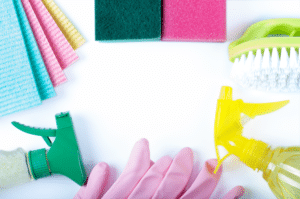 Green is a word that is used daily in our current world. Companies are geniusly employing green methods to their marketing and practices, labeling their businesses or methods as green or green or ecofriendly. The word green has come to mean life, renewal, natural, pure, clean, good earth, and other such adjectives to people, so using anything labeled “green” tends to be immensely popular. Consumers decide that their entire lives, bodies and environment, be natural, healthy, and pure, so green cleaning products are often the product of choice, versus the mainstream products containing chemicals that could possibly be more harmful than helpful. It is tempting to think that one cannot get too much of something labeled green and that there could be no harmful ingredients contained in such products. However, there are green cleaning products that should never, ever be mixed, and that should remain in the
Green is a word that is used daily in our current world. Companies are geniusly employing green methods to their marketing and practices, labeling their businesses or methods as green or green or ecofriendly. The word green has come to mean life, renewal, natural, pure, clean, good earth, and other such adjectives to people, so using anything labeled “green” tends to be immensely popular. Consumers decide that their entire lives, bodies and environment, be natural, healthy, and pure, so green cleaning products are often the product of choice, versus the mainstream products containing chemicals that could possibly be more harmful than helpful. It is tempting to think that one cannot get too much of something labeled green and that there could be no harmful ingredients contained in such products. However, there are green cleaning products that should never, ever be mixed, and that should remain in the 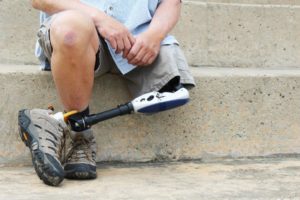 The U.S. Food and Drug Administration (FDA) informed manufacturing giant Johnson & Johnson in May, 2017 that they must put new warning labels on diabetes drug, Invokana (generic, canagliflozin), and its variations, Invokamet and Invokamet XR.
The U.S. Food and Drug Administration (FDA) informed manufacturing giant Johnson & Johnson in May, 2017 that they must put new warning labels on diabetes drug, Invokana (generic, canagliflozin), and its variations, Invokamet and Invokamet XR. A report recently conducted by the
A report recently conducted by the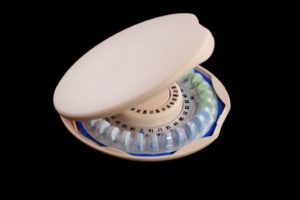 Lupin Pharmaceuticals, Inc. has voluntarily recalled some of its birth control pills, called Mibelas 24 Fe (
Lupin Pharmaceuticals, Inc. has voluntarily recalled some of its birth control pills, called Mibelas 24 Fe ( 2017 has netted a new, perhaps somewhat controversial, product fad in the fidget spinner.
2017 has netted a new, perhaps somewhat controversial, product fad in the fidget spinner.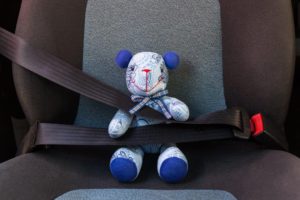 The big news of the day for parents of infants and young children is that the popular brand, Graco Children’s Products, has had to recall 25,494 of its convertible child car seats.
The big news of the day for parents of infants and young children is that the popular brand, Graco Children’s Products, has had to recall 25,494 of its convertible child car seats.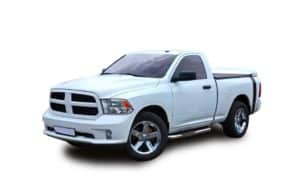 The latest in automobile recalls just announced is out from Fiat Chrysler.
The latest in automobile recalls just announced is out from Fiat Chrysler.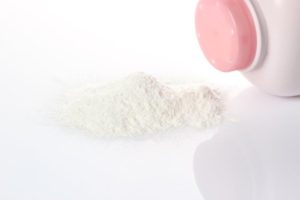 This firm has given the information and updates on talcum powder and its realized link to deadly ovarian cancer in women.
This firm has given the information and updates on talcum powder and its realized link to deadly ovarian cancer in women. The Centers for Disease Control and Prevention (CDC) and U.S. Food and Drug Administration (FDA) have put out warnings about contaminated devices used in open heart surgery made with LivaNova PLC (formerly Sorin Group Deutschland GmbH).
The Centers for Disease Control and Prevention (CDC) and U.S. Food and Drug Administration (FDA) have put out warnings about contaminated devices used in open heart surgery made with LivaNova PLC (formerly Sorin Group Deutschland GmbH).